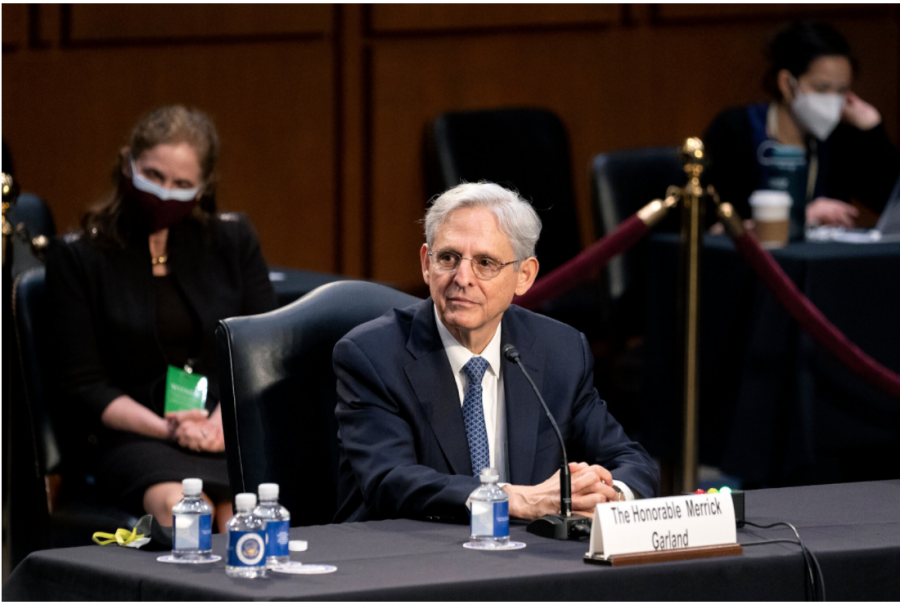The Second Impeachment of Donald Trump: Everything We Know About the Trial and What the Future Holds
March 7, 2021
On January 13, 2021, Donald Trump was impeached by the House of Representatives. The house adopted only one article of impeachment, which addressed Trump’s role in inciting the Capitol riot that took place on January 6th, as a furtherance of his attempts to reverse the 2020 election results. The historic vote was 232-197, with ten Republicans crossing party lines to vote in favor of a second impeachment, making Trump the only president in history to be impeached in the House twice (New York Times).
Article 1, Section 3, Clause 6 of the United States Constitution provides the Senate with the power to “try all impeachments,” which means that all House bids for impeachment must be tried by the Senate. Once Speaker Nancy Pelosi (D-CA) signed and certified the Article of Impeachment on January 13th, the article was transferred to the Senate 12 days later on January 25th. Representative Jamie Raskin (D-MD), who was the lead impeachment officer, read the article aloud to the members of the Senate. The witness summons was sent to Donald Trump the same day, but he declined to testify according to the New York Times.
For six days after the article was formally presented to the Senate, both the impeachment managers and Trump’s legal team filed pre-trial briefs. Despite efforts by Trump’s lawyers and other Republican Senators to delay the proceeding, the trial commenced as planned on February 9th. For hours, the House impeachment managers and Trump’s attorneys argued the constitutionality of the trial, which was a result of Senator Rand Paul’s (R-KY) January 26th motion to dismiss on the basis that the trial is unconstitutional. Paul, along with other Senators, strongly believes that impeaching a former president defies the Constitution (CNN). Debate suspended with a 56-44
for the continuation of the trial. This meant that over the following days, weeks, potentially even months, the 100 US Senators would review the evidence, witness testimonies, and legal arguments made by both sides (New York Times).
On February 10th, arguments on the core contents of the article of impeachment began. As per the Schumer-McConnell resolution, each team had 16 hours of arguments split over two days. The House impeachment managers presented their case for the first two days, yielding only a few hours of their time. Trump’s counsel utilized less than four hours of their allotted time, according to a CNN article that detailed the events of the trial. The Trump team then concluded their case on February 12th.
Following the conclusion of arguments by Trump’s counsel, Senators were allowed a four-hour period to question the two teams. The questions, submitted in writing, addressed either one side, or both sides. The questions varied in terms of the subject matter. Some addressed underdeveloped arguments, while others asked questions tailored to the personal bias of the Senator, allowing their favored side to fortify important talking points (New York Times).
Witnesses were initially not supposed to be involved in the trial until Representative Jamie Raskin called for Representative Jamie Herrara Beutler (R-WA) to be deposed on February 13th. She had released a statement the previous day discussing Trump’s conduct during the insurrection. Representative Kevin McCarthy told her that he called Trump to plead for help, and instead of providing protection for the Congresspeople, he continued to urge the Republican lawmakers to overturn the election. In her written statement published on the website of her office, she said “To the patriots who were standing next to the former president as these conversations were happening… if you have something to add here, now would be the time.”
With the new information coming to light, the impeachment managers pushed for the calling of witnesses and won in a surprising 55-45 vote, according to the New York Times. However, the House managers later struck a deal with Trump’s lawyers and dropped their motion to call witnesses. Democrats were criticized for this move, many calling it “an unbelievable cave” (CNN). The impeachment managers argued that they got what they wanted, which was Representative Herrara Beutler’s statement being read into the record. The impeachment managers also indicated that the calling of witnesses wouldn’t have mattered and wouldn’t have changed the verdict because the Republicans had already stated they would acquit Trump in any case. Since the outcome wouldn’t have changed, Democrats wanted the trial to end so the Senate could return to the work of the people.
Later that day, Senators heard closing arguments from both sides and initiated the voting process. All fifty Democrats along with seven Republicans voted for the impeachment of the former president, falling 10 votes shy of the required two-thirds majority required to indict Trump. The seven Republicans who voted to convict were Senators Richard Burr (R-NC), Bill Cassidy (R-LA), Susan Collins (R-ME), Lisa Murkowski (R-AK), Mitt Romney (R-UT), Ben Sasse (R-NE), and Patrick Toomey (R-PA). This vote was the most bipartisan impeachment in history, having the highest number of Senators cross party lines to convict (New York Times).
Trump’s conviction would have led to barring him from running for president ever again. His acquittal means that he remains eligible to bid for the White House in the future. Trump and his family have made public remarks regarding future plans to be heavily involved in the political arena. It is likely for us to hear more about those plans in his speech at the Conservative Political Action Conference (CPAC) next Sunday as per reports from both CNN and the New York Times.
As riveting as the trial was, the aftermath was even more crucial in determining the future of democracy. In a speech by Senator Mitch McConnell (R-KY) following his “not guilty” vote, he explained that his vote to acquit was based on the Constitutionality of the trial itself. He stated that Donald Trump was “practically and morally responsible” for inciting the Capitol riots last month. In a transcript of his speech published on his website, it states McConnell saying, “We have a criminal justice system in this country. We have civil litigation. And former Presidents are not immune from being held accountable by either one.” The harshness of the speech was surprising as it was more impassioned than some of those who voted in favor of impeachment.
In retaliation to McConnell’s statements, Trump issued an angry and irate statement targeting the Senate minority leader. In an analysis of the statement published by CNN, it said he pushed for Republicans to break away from party leader McConnell and promised that he will endorse Trump-supporting GOP candidates in future elections. According to the same report, he continued to blame McConnell for the loss of the Georgia special election when in actuality, the loss of the Republican Senate majority was just another victim of Trump’s party-dividing tirade that occurred towards the end of his term. Republicans fear that the “McConnell-Trump Civil War” will hurt the party’s bids to regain majority control in both the House and Senate.
President Biden emphasized the importance of unity and solidarity after the verdict was reached. In a statement released by the Office of President Biden late Saturday evening, it stated, “the substance of the charges is not in dispute.” He highlighted how Senators who voted “not guilty”, particularly Senator McConnell, still condemned the actions of Trump and held him responsible for the domestic terrorism that took place at the beginning of January. Although he steered away from the details of the case, he expressed gratitude to both Democrats and Republicans for maintaining the integrity of our democracy. “That it [democracy] must always be defended. That violence and extremism have no place in America.”
Although the impeachment process against Trump has ceased, he still faces a myriad of problems, including three investigations, two of which are criminal. The cases deal with Trump’s business dealings in New York and the most recent inquiry into his attempts to overturn his loss to President Biden in Georgia. As for Trump’s role in the Capitol attack, a special 9/11-esque Congressional commission seems to be the main remaining option to hold him responsible for his actions (New York Times).
Currently, Judge Merrick Garland is in the process of being confirmed for Attorney General, and during day one of his hearing, he outlined how he plans to investigate the Capitol riot. According to CNN, he said he will “pursue any and all leads.” To this day, 230 people have been charged in connection to the attack, and Garland explained how the prosecutors will “begin with the people on the ground” (CNN) and work their way up to those who were more extensively involved.
Angela Delano, Ramapo High School junior and president of the Ramapo High School Democrats Club, shared her thoughts on the importance of the impeachment trial. “The impeachment trials were necessary actions that our country took against an inept president whose actions were unconstitutional and uncalled for. Unfortunately, the fact that political parties are more important to many Americans and politicians alike is deplorable – inciting insurrection and being acquitted will create a precedent allowing presidents to get away with anything.”
The Era of the Trump Administration is officially over. What lies ahead for Trump, the Republican Party, and the Biden-Harris administration is uncertain, but one thing is clear. It is going to take a major bipartisan effort to repair the extensive damage that the Trump administration has done to the integrity of our democracy.






